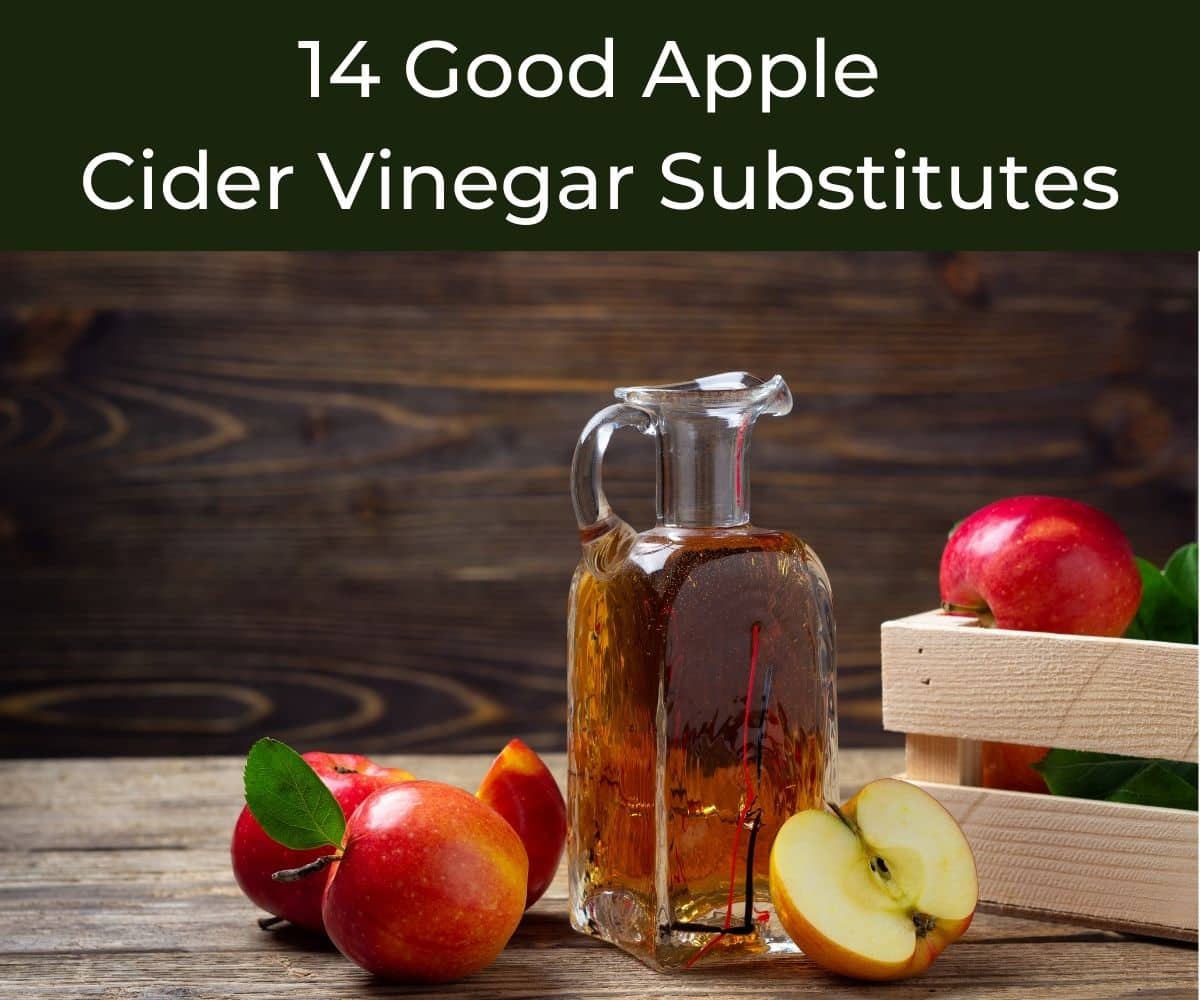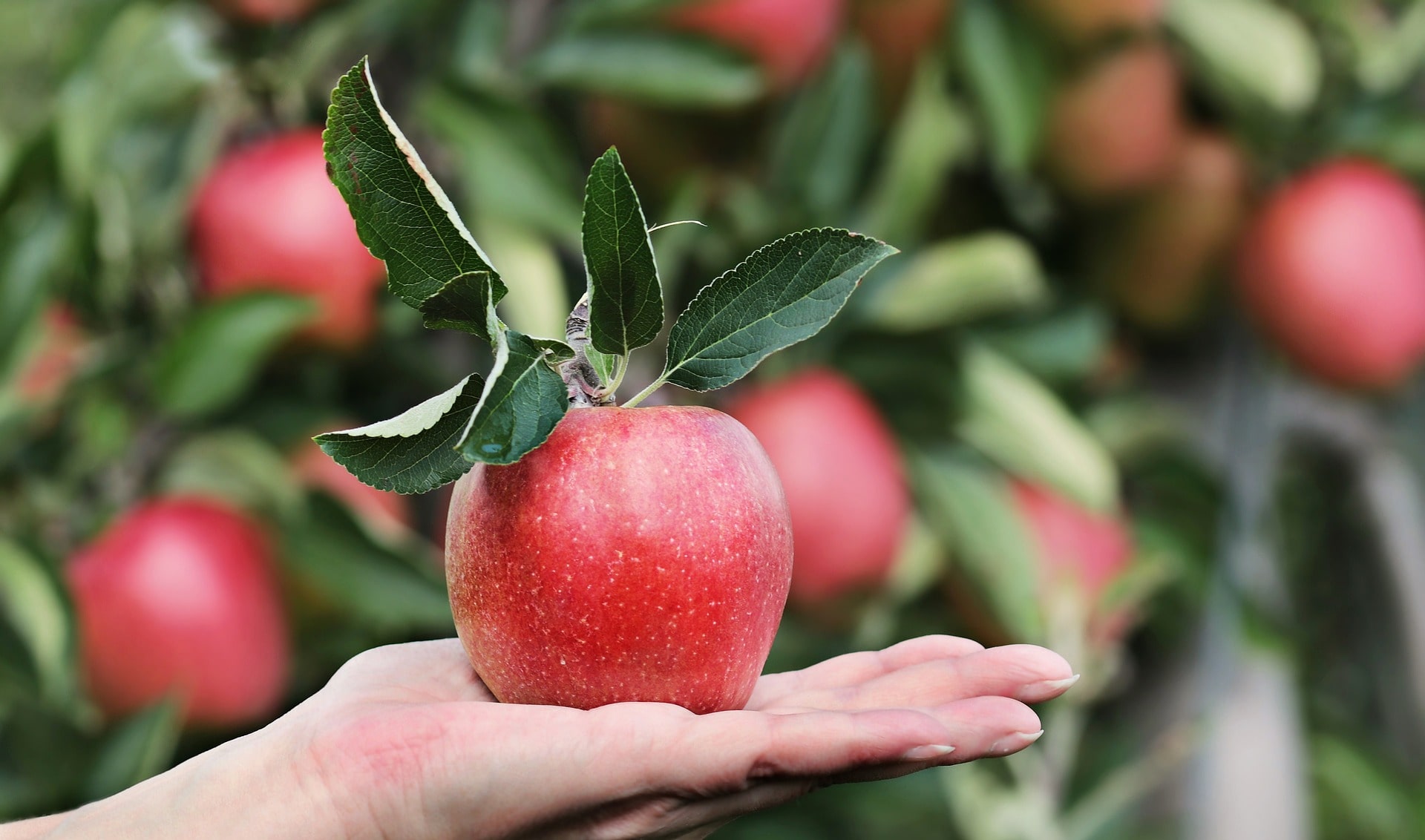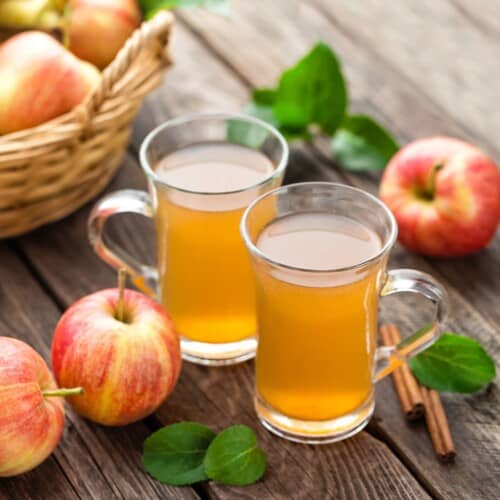Introduction

Apple cider vinegar (ACV) has gained widespread popularity in recent years, being considered a versatile ingredient in kitchens and home remedies. Its distinct tangy flavor and potential health benefits have made it a staple in many diets, particularly within the weight loss community. However, there are instances when you may need to find a substitute for ACV. Whether it’s due to personal preference, dietary restrictions, or simply not having it on hand, exploring alternatives can be beneficial. In this article, we will delve into some common substitutes for apple cider vinegar and discuss their uses and benefits.
What Is Apple Cider Vinegar?
Apple cider vinegar is a type of vinegar made from fermented apple juice, yeast, and sugar. It undergoes a two-step fermentation process where yeast is added to the apple juice to convert the sugars into alcohol. The alcohol then goes through a further fermentation process to produce acetic acid, which gives apple cider vinegar its distinct tangy flavor and beneficial properties. Apple cider vinegar is widely used in cooking, dressings, and home remedies due to its potential health benefits and versatile nature.
Why Find A Substitute For Apple Cider Vinegar?
Finding a substitute for apple cider vinegar may be necessary if you are looking to diversify your flavors or if you have run out of this ingredient. While apple cider vinegar has a unique tangy flavor, it might not be appealing to everyone. Some people find it too sweet or mild for their taste. By exploring alternative vinegars like white wine vinegar, lemon juice, balsamic vinegar, or rice vinegar, you can find substitutes that better suit your palate and the specific requirements of your recipe.
White Wine Vinegar

White wine vinegar is a great substitute for apple cider vinegar due to its similar acidity levels. While it may not have the fruity undertones of apple cider vinegar, it offers a neutral flavor profile that can work well in various recipes. White wine vinegar is made from fermented white wine, resulting in a tangy and crisp taste. It pairs well with salads, marinades, and dressings. It also works as a pickling agent. When using white wine vinegar as a substitute, use it in equal amounts as you would apple cider vinegar to maintain the balance of flavors in your dish.
Overview Of White Wine Vinegar
White wine vinegar is a type of vinegar made from fermented white wine. It has a tangy and crisp flavor profile, making it a popular ingredient in various culinary dishes. White wine vinegar is known for its balanced acidity levels and its ability to enhance the flavors of other ingredients. It is commonly used in salads, marinades, dressings, and even as a pickling agent. While it may not offer the fruity undertones of apple cider vinegar, white wine vinegar serves as a great substitute due to its similar acidity levels.
Health Benefits And Culinary Uses
White wine vinegar offers several health benefits and is a versatile ingredient in the culinary world. Its acidity helps improve digestion, supports weight loss, and balances blood sugar levels. The antimicrobial properties of white wine vinegar can also aid in fighting bacterial infections. In terms of culinary uses, it is commonly used in salad dressings, marinades, and pickling liquids. Its tangy and crisp flavor profile enhances the taste of various dishes, making it a popular choice among chefs. Remember to use it in moderation, as excessive consumption may lead to tooth enamel erosion.
Lemon Juice

Lemon juice is a versatile substitute for apple cider vinegar, especially when it comes to salad dressings and marinades. It shares similar fruity and acidic properties with apple cider vinegar, making it an excellent alternative. Whether you use freshly squeezed lemon juice or pre-squeezed/bottled lemon juice, the ratio to substitute is 1:1 with apple cider vinegar. The tangy and refreshing flavor of lemon juice can enhance the taste of your dishes without compromising the desired acidity. Just remember to adjust the seasoning accordingly to maintain the balance of flavors.
Using Lemon Juice As A Substitute
Lemon juice is a versatile substitute for apple cider vinegar, especially when it comes to salad dressings and marinades. It shares similar fruity and acidic properties with apple cider vinegar, making it an excellent alternative. Whether you use freshly squeezed lemon juice or pre-squeezed/bottled lemon juice, the ratio to substitute is 1:1 with apple cider vinegar. The tangy and refreshing flavor of lemon juice can enhance the taste of your dishes without compromising the desired acidity. Just remember to adjust the seasoning accordingly to maintain the balance of flavors.
Benefits And Flavor Profile
Balsamic vinegar not only adds a rich and distinct flavor to your dishes but also offers several health benefits. It contains antioxidants that help combat inflammation and protect against chronic diseases. Balsamic vinegar is known for its complexity in flavor, with a perfect balance of sweetness and tanginess. Its syrup-like texture and caramelized notes make it a popular choice for drizzling over salads, roasted vegetables, or even desserts. This versatile vinegar can elevate the taste of your meals while providing a range of health benefits.
Balsamic Vinegar

Balsamic vinegar is a flavorful alternative to apple cider vinegar that adds a unique twist to your dishes. Known for its rich and complex flavor, balsamic vinegar offers a perfect balance of sweetness and tanginess. Its syrup-like texture and caramelized notes make it a popular choice for drizzling over salads, roasted vegetables, or even desserts. When using balsamic vinegar as a substitute, keep in mind that it is sweeter than apple cider vinegar, so you may need to adjust the amount used accordingly. Experiment with different ratios to achieve the desired taste.
Introduction To Balsamic Vinegar
Balsamic vinegar is a popular and flavorful alternative to apple cider vinegar. It is known for its rich and complex flavor profile, offering a perfect balance of sweetness and tanginess. Balsamic vinegar has a syrup-like consistency and caramelized notes that add a unique twist to dishes. It is commonly used as a drizzle over salads, roasted vegetables, and even desserts. The distinct character of balsamic vinegar comes from its aging process, which involves the fermentation of cooked grape must. This process gives balsamic vinegar its deep, dark color and intense flavor.
How To Use It As A Substitute
Balsamic vinegar can be used as a substitute for apple cider vinegar in various ways. It can be used as a drizzle over salads, roasted vegetables, and even desserts to add a unique and tangy flavor. When using it as a substitute, it is recommended to use a 1:1 ratio, substituting balsamic vinegar for apple cider vinegar. However, keep in mind that balsamic vinegar has a more pronounced flavor and sweetness, so adjust the amount according to your taste preferences. It is also important to consider the color and texture of the dish, as balsamic vinegar may darken and thicken certain recipes.
Rice Vinegar

Rice vinegar, a type of vinegar made from fermented rice, is a popular alternative to apple cider vinegar. It offers a mild and slightly sweet flavor, making it a versatile option in various culinary applications. When substituting apple cider vinegar with rice vinegar, use a 1:1 ratio and add 1/4 teaspoon of sugar per tablespoon of vinegar to replicate the flavor profile. Rice vinegar works well in stir-fries, rice dishes, soups, pickled vegetables, and salad dressings. Its light and delicate flavor complements Asian cuisines perfectly. Enjoy the subtle tang and sweetness that rice vinegar brings to your dishes.
Exploring Rice Vinegar As An Alternative
Rice vinegar is a versatile alternative to apple cider vinegar due to its mild and slightly sweet flavor profile. It can be used in various culinary applications, including stir-fries, rice dishes, soups, pickled vegetables, and salad dressings. By substituting apple cider vinegar with rice vinegar at a 1:1 ratio, you can replicate the tangy taste. To enhance the flavor profile, add 1/4 teaspoon of sugar per tablespoon of vinegar. Rice vinegar is a popular choice in Asian cuisines and adds a light, delicate tang and sweetness to your dishes. Enjoy the versatility of rice vinegar as a substitute for apple cider vinegar.
Applications And Health Benefits
Rice vinegar is a versatile alternative to apple cider vinegar due to its mild and slightly sweet flavor profile. It can be used in various culinary applications, including stir-fries, rice dishes, soups, pickled vegetables, and salad dressings. By substituting apple cider vinegar with rice vinegar at a 1:1 ratio, you can replicate the tangy taste. To enhance the flavor profile, add 1/4 teaspoon of sugar per tablespoon of vinegar. Rice vinegar is a popular choice in Asian cuisines and adds a light, delicate tang and sweetness to your dishes. Enjoy the versatility of rice vinegar as a substitute for apple cider vinegar.
Conclusion

In conclusion, there are several alternatives to apple cider vinegar that can be used as substitutes in various recipes. White wine vinegar, lemon juice, balsamic vinegar, and rice vinegar all offer different flavors and health benefits. When choosing a substitute, consider your specific needs and the flavor profile you desire. Experimenting with these substitutes can add unique and delicious elements to your dishes. Remember to adjust quantities and flavors accordingly to achieve the desired taste. With these alternatives at your disposal, you can confidently explore new flavors and continue enjoying your favorite recipes without apple cider vinegar.
Recap Of Apple Cider Vinegar Alternatives
There are several alternatives to apple cider vinegar that can be used as substitutes in various recipes. White wine vinegar, lemon juice, balsamic vinegar, and rice vinegar all offer different flavors and health benefits. When choosing a substitute, consider your specific needs and the flavor profile you desire. Experimenting with these substitutes can add unique and delicious elements to your dishes. Remember to adjust quantities and flavors accordingly to achieve the desired taste. With these alternatives at your disposal, you can confidently explore new flavors and continue enjoying your favorite recipes without apple cider vinegar.
Choosing The Best Substitute For Your Needs
When selecting a substitute for apple cider vinegar, it’s essential to consider your specific needs and the flavor profile you desire. White wine vinegar is an excellent option if you want a neutral taste similar to apple cider vinegar. Lemon juice provides a tangy and citrusy flavor, which works well in dressings and marinades. Balsamic vinegar adds a rich and complex taste, perfect for enhancing roasted vegetables or drizzling over salads. Rice vinegar offers a milder flavor ideal for Asian dishes. Experiment with these alternatives to find the perfect substitute that suits your recipes and personal preferences.
FAQs about Substituting Apple Cider Vinegar
Q: Can I substitute apple cider vinegar with any other kind of vinegar?
A: Yes, you can substitute apple cider vinegar with white vinegar or red wine vinegar. However, keep in mind that the flavors may vary slightly, so adjust accordingly in your recipe.
Q: How much white vinegar should I use as a substitute for apple cider vinegar?
A: As a general rule, you can use an equal amount of white vinegar as a replacement for apple cider vinegar in recipes. For example, if a recipe requires 1 tablespoon of apple cider vinegar, you can use 1 tablespoon of white vinegar instead.
Q: What about using red wine vinegar instead of apple cider vinegar?
A: Red wine vinegar can also be used as a substitute for apple cider vinegar. The flavor of red wine vinegar is more robust and tart compared to apple cider vinegar’s slightly sweet and fruity taste. To replace apple cider vinegar with red wine vinegar, use the same amount called for in the recipe.
Q: Can I use lemon juice as a substitute for apple cider vinegar?
A: Yes, lemon juice can be used as a substitute for apple cider vinegar in some recipes, especially if you are looking for a citrusy flavor. However, keep in mind that lemon juice is more acidic than apple cider vinegar, so you may need to adjust the quantity accordingly. Start with a smaller amount and taste as you go.
Q: Are there any other health benefits associated with the substitutes?
A: Each substitute has its own set of health benefits. For example, white vinegar is known to have antimicrobial properties, while apple cider vinegar has been linked to improved digestion. Red wine vinegar is known for its antioxidants, and lemon juice is a good source of vitamin C. However, it’s important to note that the quantities used in substitution may not provide the same health benefits as the original ingredient.
Q: Can I substitute apple cider vinegar with any non-vinegar ingredient?
A: Depending on the recipe, you may be able to substitute apple cider vinegar with other ingredients. Some alternatives include lemon juice, lime juice, or even a combination of water and a small amount of sugar. However, keep in mind that these substitutions will alter the flavor of the dish, so it may not be the exact same result.
In conclusion, apple cider vinegar can be substituted with white vinegar, red wine vinegar, or lemon juice in recipes, but the flavors may vary slightly. Each substitute has its own taste profile and health benefits, so choose the one that best suits your needs and the recipe you’re preparing.

Frog Bear & Wild Boar is a vibrant and dynamic establishment located at 343 N Front St. in the heart of the Arena District in Columbus, OH. Our story began with a passion for creating an inviting and lively environment where friends, families, and colleagues can come together to enjoy great food, refreshing drinks, and fantastic entertainment. Founded on the principles of warm hospitality, delicious cuisine, and a commitment to community, Frog Bear & Wild Boar has become a beloved gathering place for locals and visitors alike. Our dedication to delivering exceptional experiences has earned us a reputation for being a go-to destination for memorable outings and special occasions.